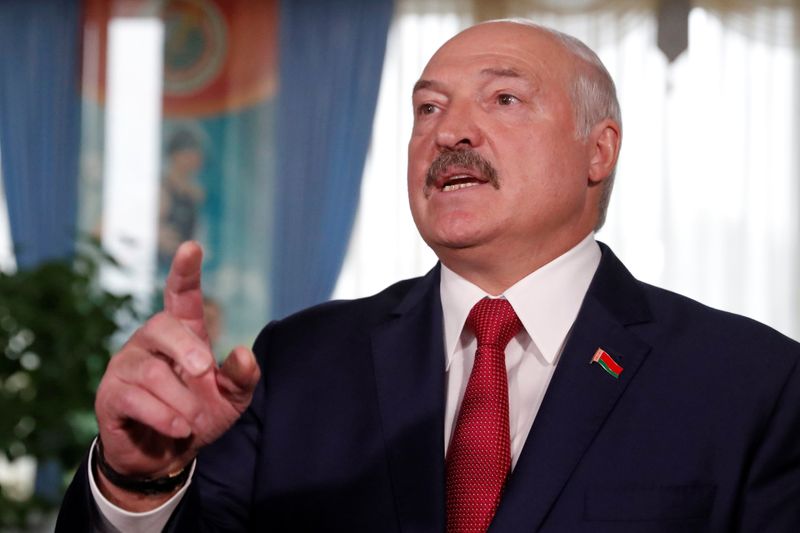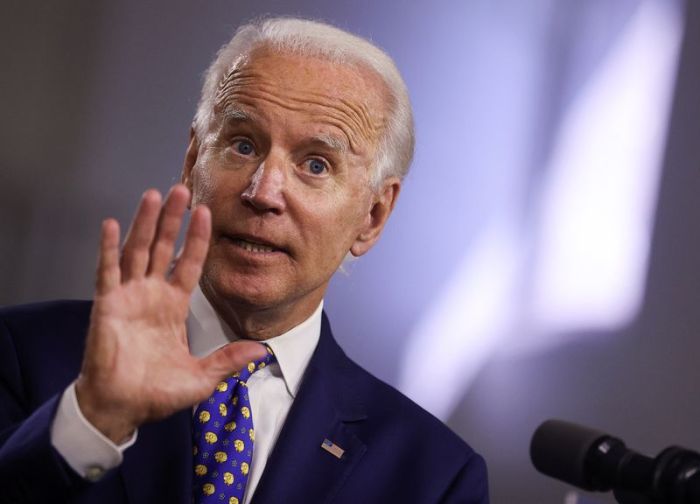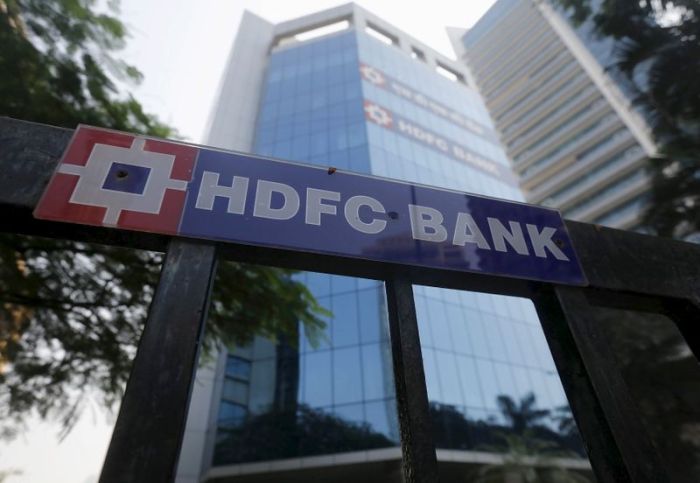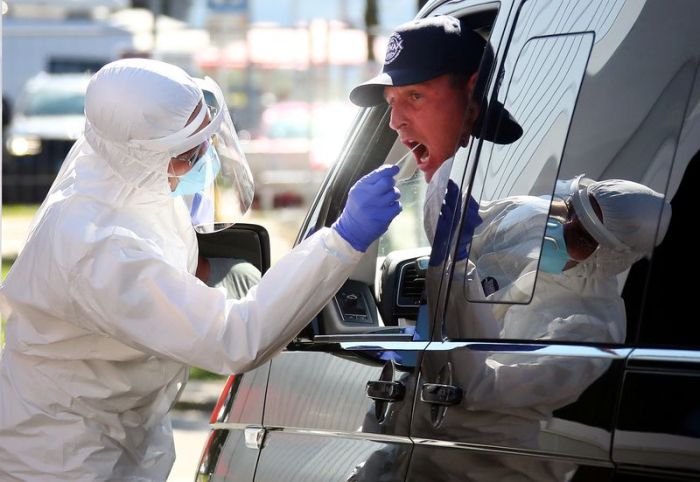MINSK (Reuters) – Belarusian President Alexander Lukashenko accused Moscow on Tuesday of lying in a row about the arrest of a group of Russian security contractors in Minsk, and said unnamed forces were plotting a revolution that would fail.
In a fiery address to the nation as early voting began in an election in which he is seeking to extend his 26-year rule, Lukashenko said he would protect Belarus from opponents he portrayed as wreckers controlled by “puppet masters” abroad.
He faces his toughest challenge for years in Sunday’s election because of public anger over his handling of the COVID-19 pandemic, the economy and human rights in the strategically important east European country of 9.5 million.
Before the election there have been mass protests, some of Lukashenko’s opponents have been arrested on what they call trumped-up charges and Minsk has said it suspects the security contractors arrested this month were preparing “terrorist acts”.
Russia has said the detained men were transiting Belarus to a third country, but Lukashenko said those assertions were “all lies”.
“These people have given testimony and said they were sent specially to Belarus. Their order was to wait (for further instructions),” he said.
Lukashenko said Belarus had information about a second group of fighters deployed in the south of the country. He cited no evidence but said they would be hunted down.
Addressing Russia, he said: “Stop lying. You have already disgraced yourselves.”
There was no immediate reaction from Moscow, which has in the past dismissed Lukashenko’s criticisms as emotional and has demanded the security contractors’ release.
Russia, whose oil exports run through Belarus to the West and has long regarded the country as a buffer zone against NATO, is watching the outcome of events in the country closely, as is the West which has tried to lure Minsk from Moscow’s orbit.
“COLOUR REVOLUTIONS”
Belarus said earlier on Tuesday it would conduct military training for reservists near the border with Russia from Aug. 11. Moscow said on Monday more than 3,000 men and 800 vehicles would take part in war games in regions that neighbour Belarus.
Lukashenko, who is seeking his sixth term, cast himself as a guarantor of stability and said Belarus was threatened by opponents beholden to foreign forces seeking more of the “colour revolutions” that toppled leaders in other ex-Soviet republics.
“They decided to try these colour revolutions on us, using new information technology,” he said.
He said the economic fallout from COVID-19 had shown the need for a strong state, and warned: “Don’t believe those who promise wonders – miracles don’t happen.”
He said he would double salaries in the next five years and protect pensions, and rejected opponents’ calls to revert to a constitution setting a two-term limit on the presidency.
His main election opponent is Svetlana Tikhanouskaya, a former teacher whose husband was arrested and prevented from taking part. Western observers do not judge elections in Belarus to be free and fair.
(Reporting by Andrei Makhovsky; Additional reporting by Andrey Kuzmin and Alexander Marrow; Writing by Matthias Williams/Andrew Osborn; Editing by Timothy Heritage)

























